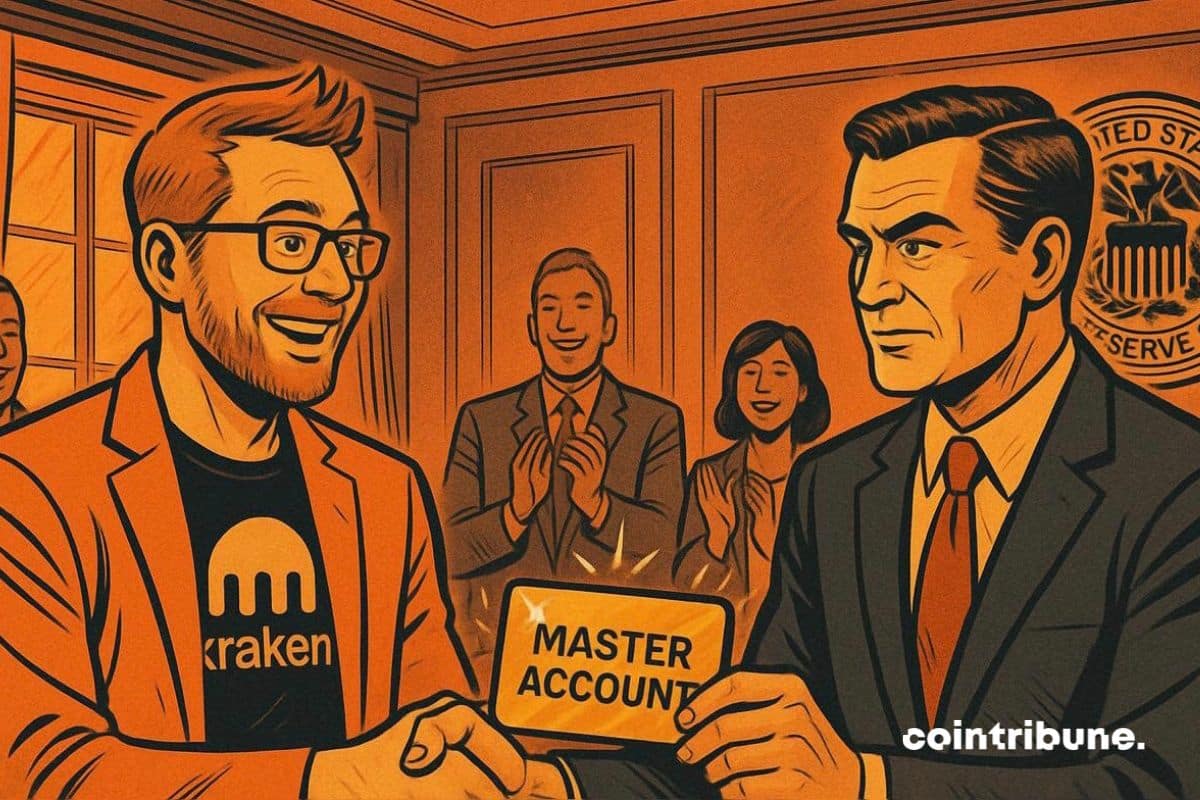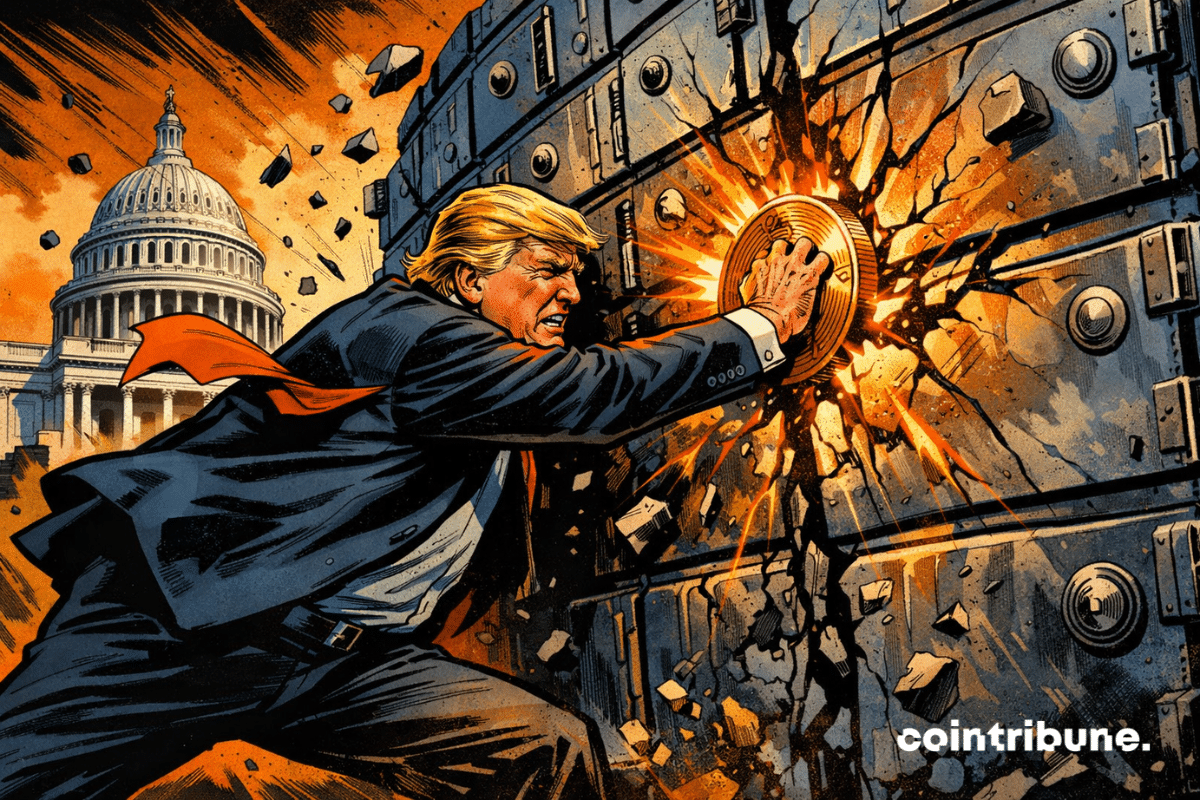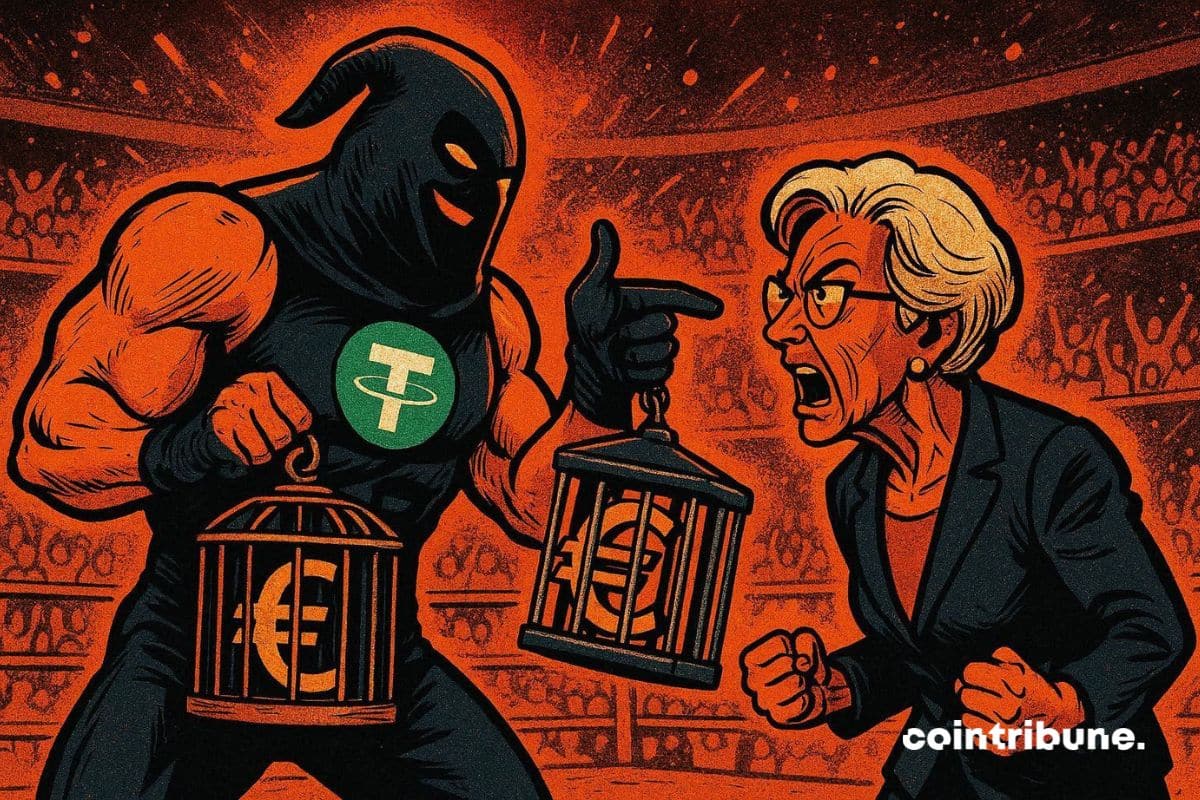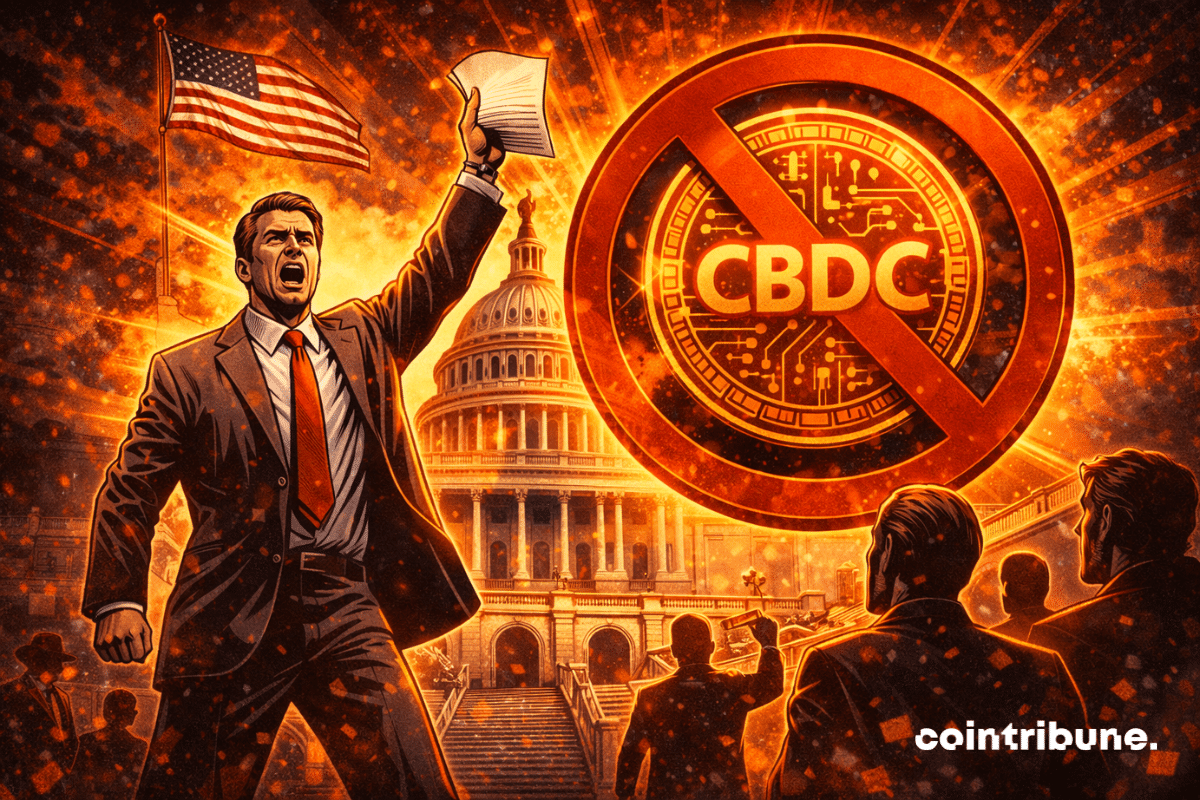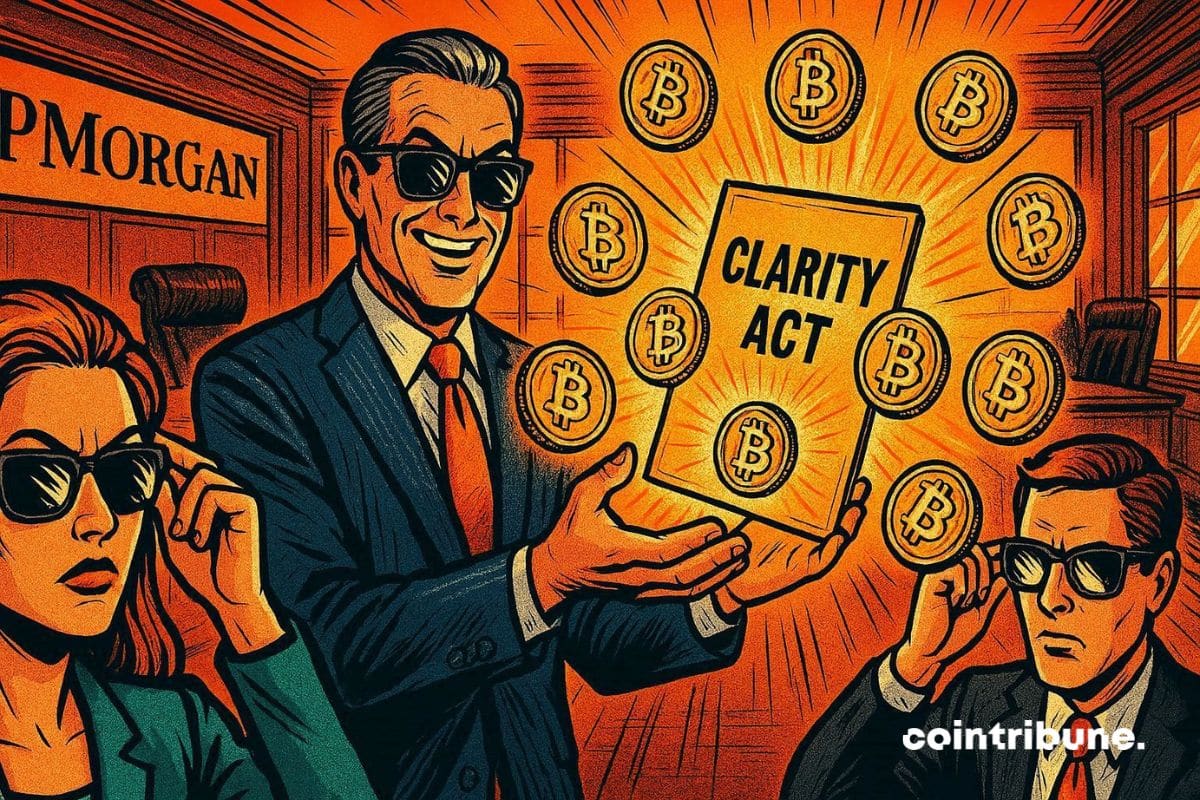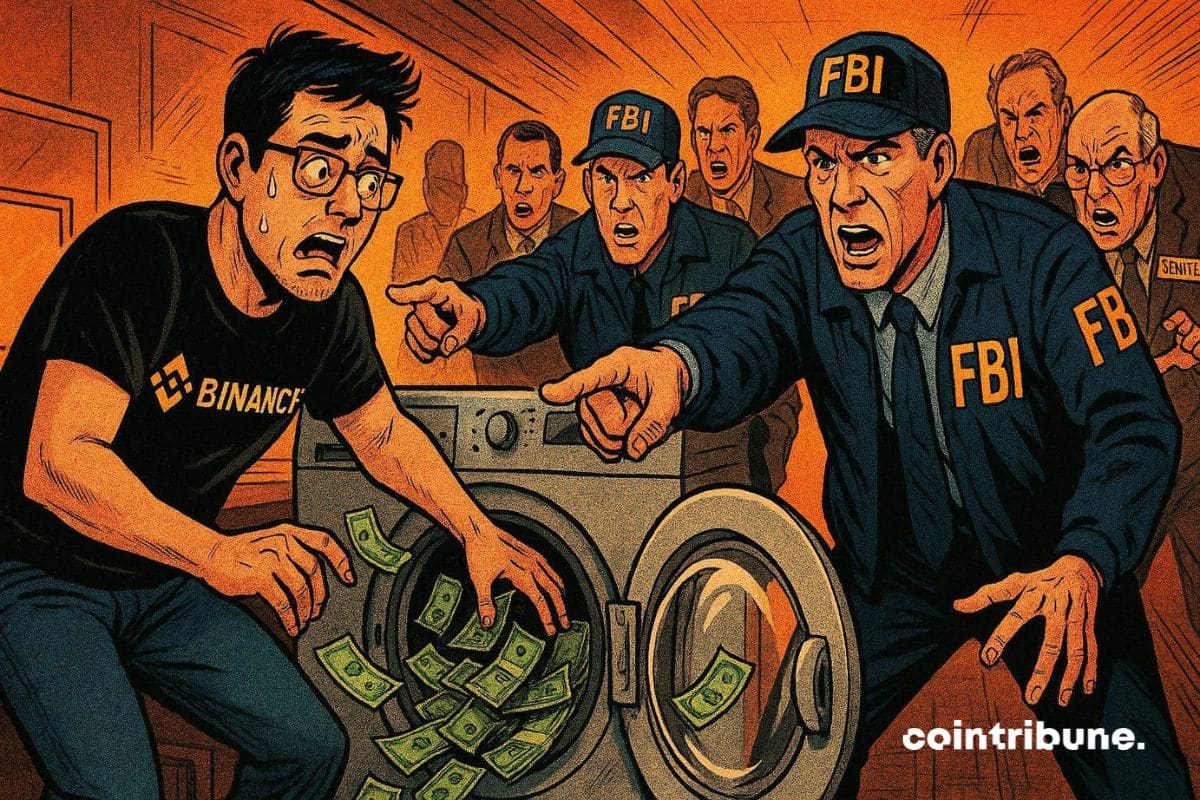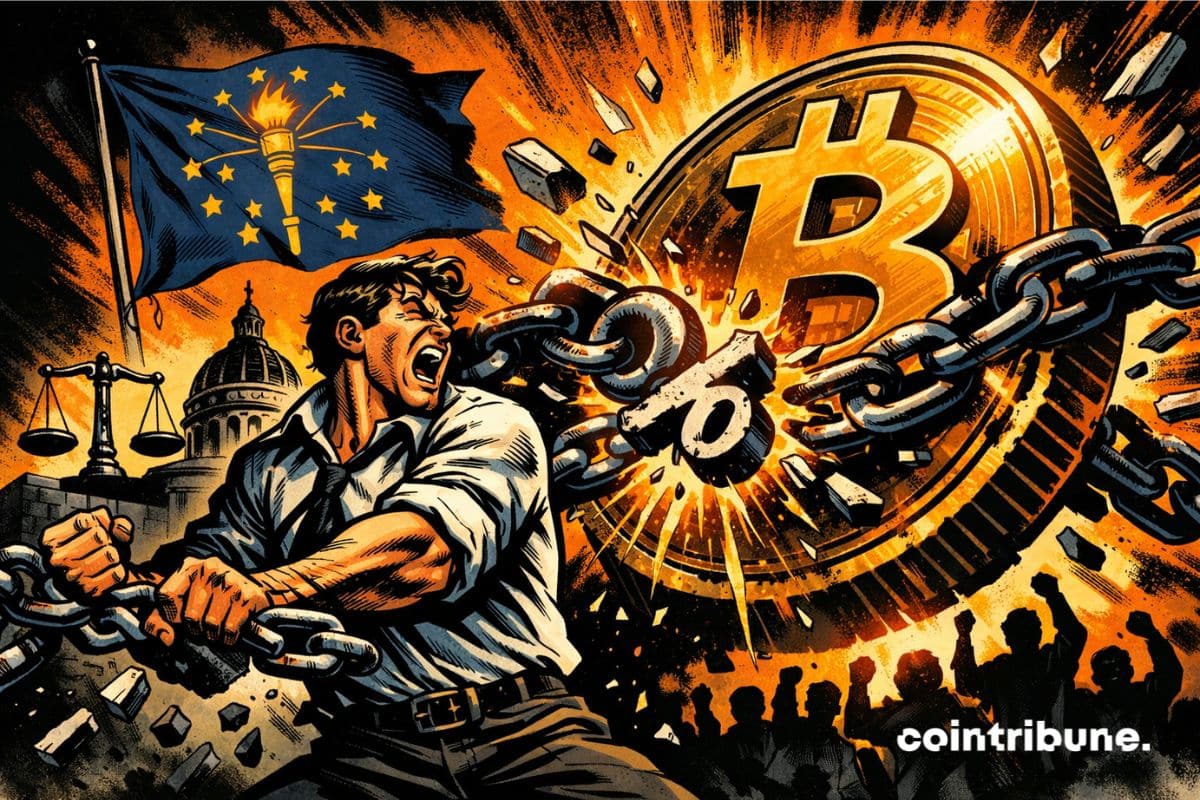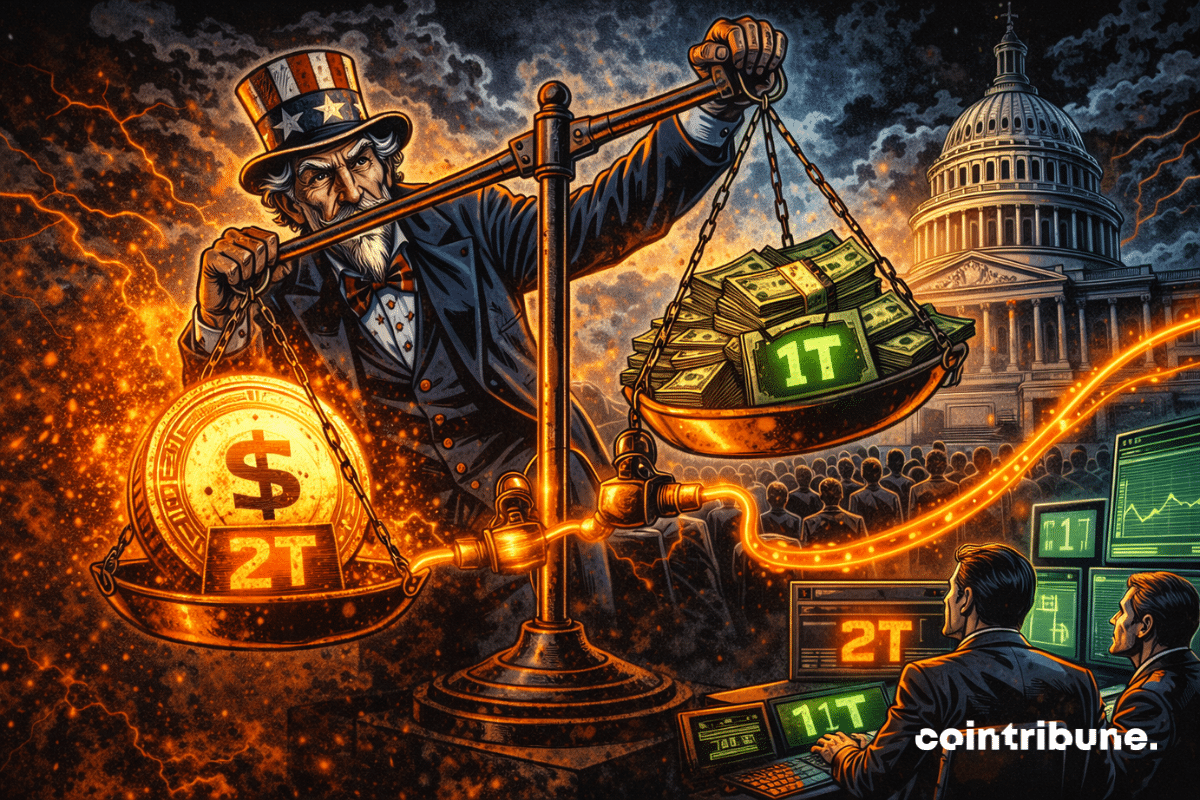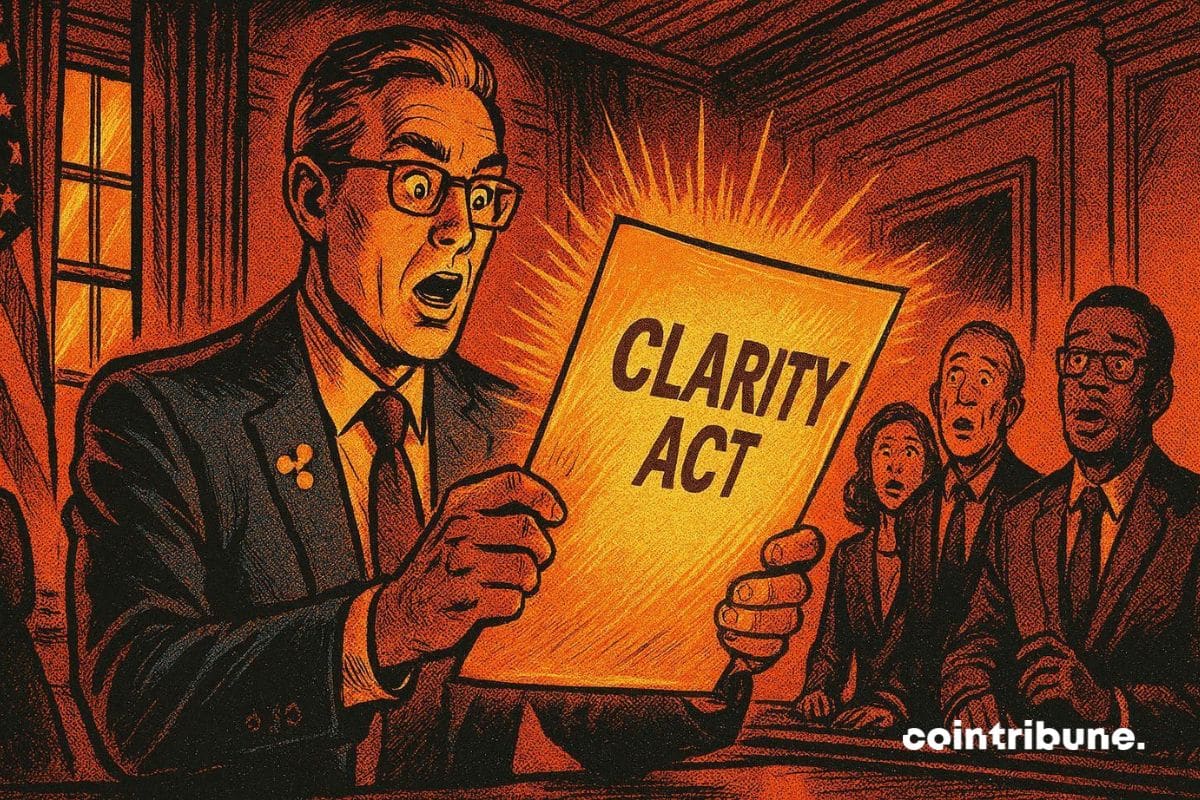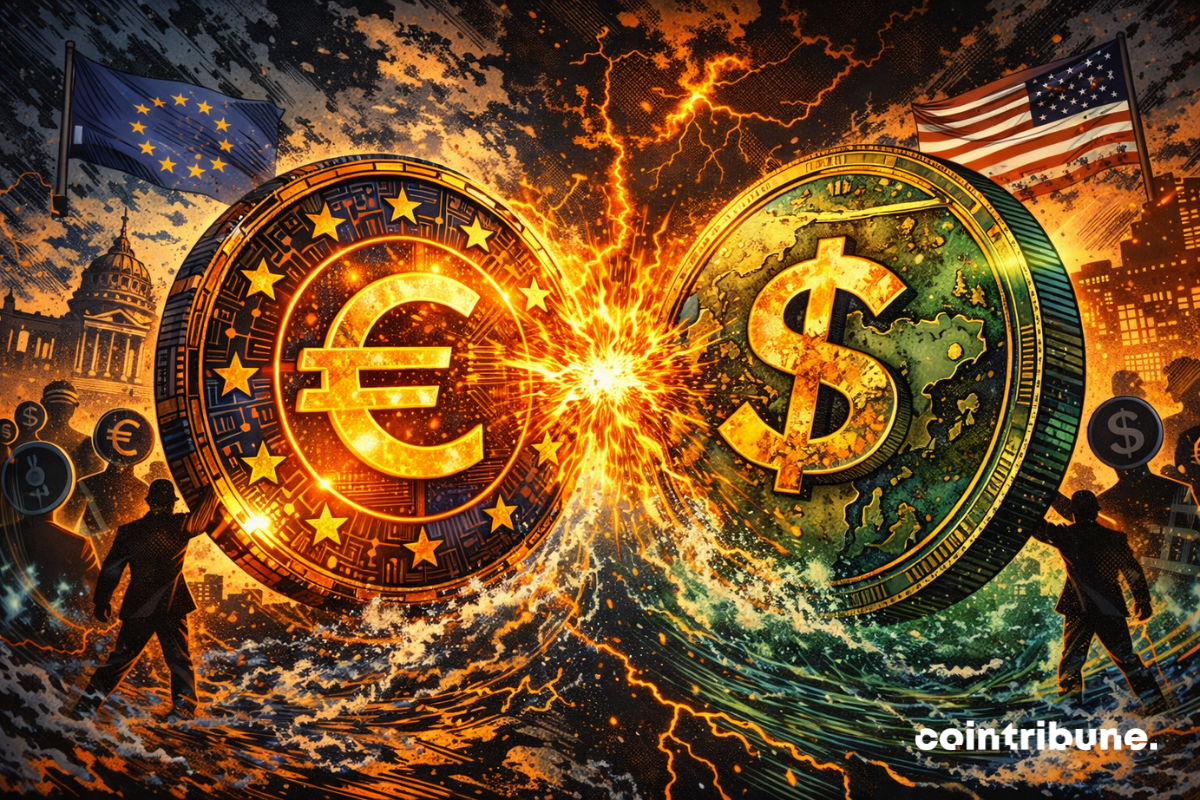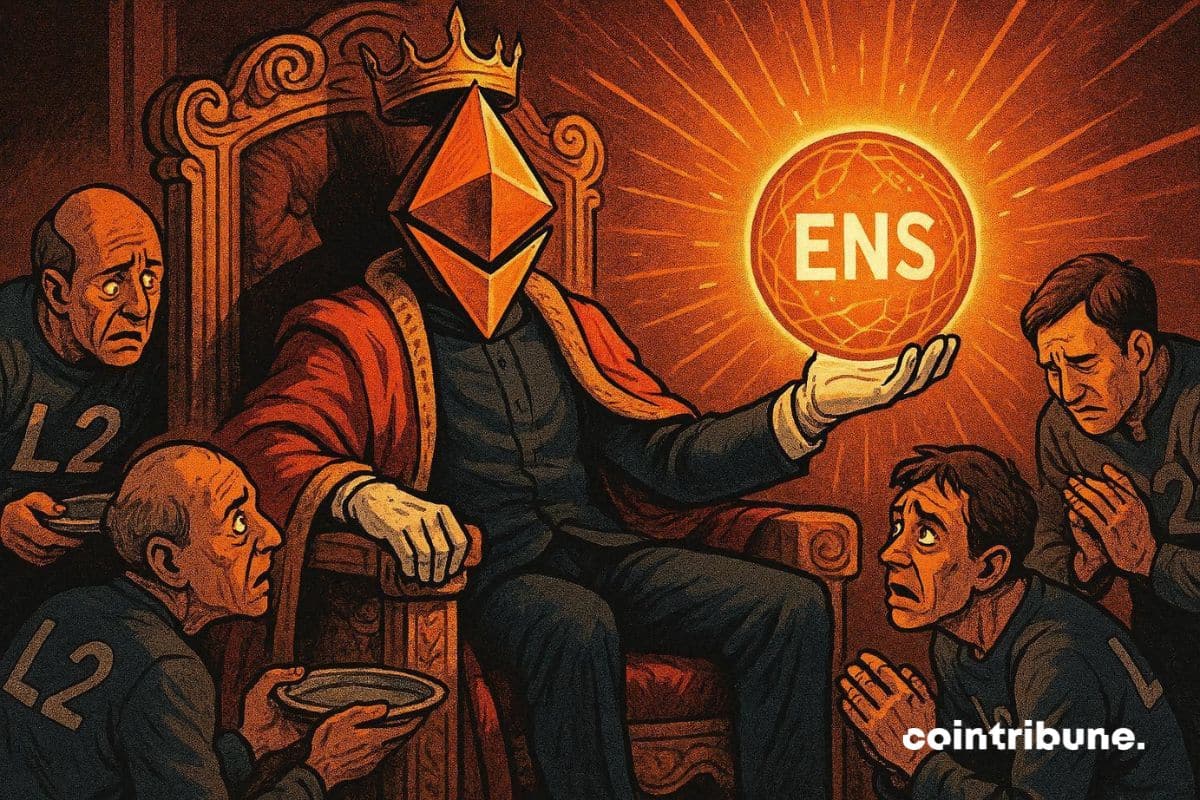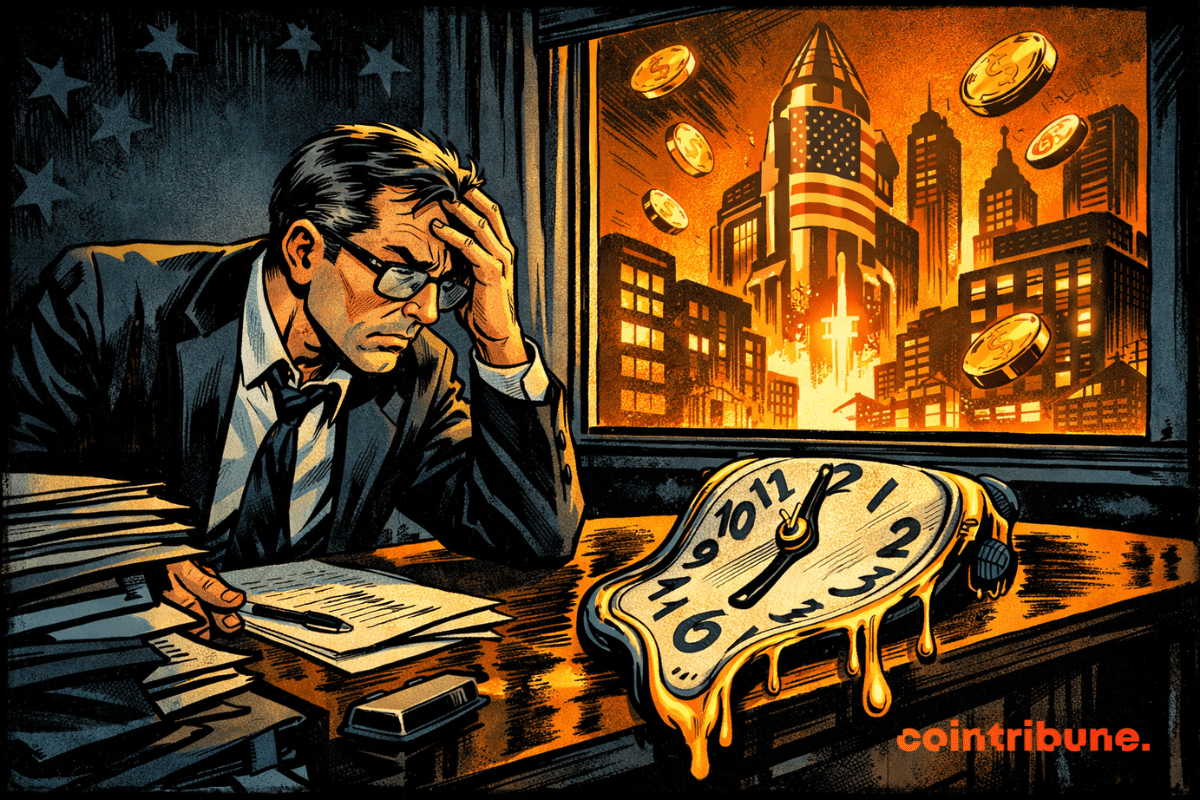Kraken has just crossed a historic milestone by becoming the first crypto platform to obtain a "Master Account" from the Fed. A revolution that could transform transactions, strengthen investor confidence, and accelerate the integration of cryptocurrencies into the traditional financial system.
Theme Crypto regulation
Political storm around crypto in the United States. Trump urges Congress while banks try to impose their rules.
Stablecoins seriously worry the ECB. With a market of 300 billion dollars, their growth threatens the EURO and European monetary sovereignty. Why and how could these digital assets disrupt the old continent's economy?
Senators wanted housing. The anti-CBDC crowd shoved their crusade in. The Fed is muzzled. China is rejoicing. Crypto enthusiasts applaud. Nobody saw it coming.
The Clarity Act could mark a historic turning point for the crypto market. According to JPMorgan, its adoption by mid-2026 would act as an unprecedented accelerator for the market, with 8 catalysts capable of redefining the ecosystem.
World Liberty Financial is moving to consolidate governance power by introducing a six-month staking requirement for voting rights. A newly proposed framework would require holders of unlocked WLFI tokens to stake them for at least 180 days before gaining access to protocol governance. The initiative introduces capital-tiered participation levels tied to large staking commitments and USD1-related incentives.
After a historic low, Ethereum holders show a marked return of confidence. Could this rebound in retention after 4 years of decline signal a new era for ETH?
A bipartisan group of U.S. lawmakers has introduced new legislation aimed at protecting blockchain software developers from certain criminal charges. Sponsors say the proposal would clarify how federal law applies to developers who do not control user funds. Supporters argue that recent prosecutions have created legal uncertainty for builders working on open-source tools. The measure adds to a broader debate in Congress over digital asset regulation.
Binance, the world leader in cryptocurrencies, is at the center of a political scandal. 11 U.S. senators demand a federal investigation into suspicious transactions linked to Iran. With $1.7 billion at stake, the crypto exchange faces historic sanctions.
In the United States, the regulatory battle around cryptos is now playing out at the state level, and Indiana has just sent a strong political signal. Lawmakers have passed House Bill 1042, a text that frames the rights of crypto holders, prohibits certain taxes deemed discriminatory, and paves the way for asset exposure in public retirement plans. Transmitted to Governor Mike Braun, the bill could take effect as early as July 1 for the bulk of its provisions.
Stablecoins want to buy U.S. debt. 2 trillion in their sights. The Treasury panics, 30-year bonds suffer. Tether is rubbing its hands.
Metaplanet CEO Simon Gerovich has pushed back against growing criticism of the company’s Bitcoin treasury strategy and disclosure practices. Anonymous accounts on X alleged that the firm withheld price-sensitive information tied to large Bitcoin purchases, derivatives positions, and Bitcoin-backed borrowings. Gerovich dismissed the claims, arguing that the company’s filings and public announcements clearly document its activities.
The crypto market shakes, but investors act. Despite an "Extreme Fear" index and record Bitcoin ETF withdrawals, Robinhood reveals a surprise trend: diversification is exploding. Bitcoin and Ethereum are no longer enough. Which cryptos and strategies dominate the market?
The Clarity Act could change everything for crypto, and Brad Garlinghouse bets 90% on its adoption in April 2026. A regulation that would finally clarify the status of digital assets, reduce legal uncertainties, and pave the way for a new era for Ripple and stablecoins.
The cryptocurrency market in Russia is experiencing rapid growth, with massive financial flows escaping authorities' control every year. According to estimates, nearly 129 billion dollars circulate in unregulated transactions, highlighting the scale of adoption by citizens and the urgency to integrate these digital assets into the legal framework.
Washington throws its dollar stablecoins onto the Old Continent. Berlin says no. The Bundesbank draws its digital euro and its own stablecoins. The currency war is declared.
The French subsidiary of the cryptocurrency exchange platform Binance confirmed on Thursday that one of its employees was the victim of a burglary at his home. Law enforcement arrested three suspects. This case is part of an unprecedented wave of attacks targeting the crypto sector in France.
The European Parliament has taken a decisive step in the development of the digital euro, endorsing a resolution that confirms its strategic importance for monetary sovereignty and the future of payments in Europe.
Sam Bankman-Fried is seeking to reopen his criminal case tied to the collapse of FTX. The former crypto executive has requested a new trial, arguing that newly surfaced witness testimony could weaken key aspects of the prosecution’s case. Convicted on multiple fraud-related counts, Bankman-Fried now claims jurors did not see a complete and accurate picture of certain evidence. His filing frames the issue as one of fairness in the trial process rather than a disagreement with the verdict itself.
The SEC under Atkins lets go of Binance and Sun, coincidentally just as Trump and his crowd are feasting on WLFI… Coincidence or nepotism? The defrauded voters want more.
Cryptocurrencies under close watch, the AMF gives an ultimatum to crypto companies: get MiCA approval or shut down. A headache for small players, a shock for the crypto-sphere.
The European Union is about to take a major step in its economic war against Moscow. It plans to outright ban all crypto transactions involving Russian entities. A radical decision, but will it be enough to stop the machine?
After three weeks of heavy selling, outflows on crypto products are clearly calming down, a signal often more telling than the price. They fall to $187M for the week, versus $3.43B in the previous two, which clearly changes the mood. At the same time, the price decline slows and Bitcoin briefly touched $60,000, a level that shifts from a panic reflex to a more rational reading.
Crypto in Israel: stakeholders demand a major reform in the face of banking and tax blockages that hinder innovation. Details here!
Canada, amid crypto regulation, launches a strict framework for digital asset custodians. But beware: small platforms risk being crushed by colossal costs.
ENS has just disrupted the crypto ecosystem by abandoning Namechain for Ethereum L1. A bold decision driven by a 99% drop in gas fees and unexpected scalability. Why this strategy could redefine the future of L2s in the crypto ecosystem?
Beijing has just clarified its position in a radical way. The People's Bank of China formally bans the issuance of stablecoins backed by the yuan and tokenized assets, for both Chinese and foreign companies. A red line now established.
On February 9, 2026, MegaETH will officially launch its mainnet, promising a revolution for Ethereum. With ultra-fast crypto transactions and rewards for early adopters, discover how to position yourself today to maximize your gains.
European companies developing tokenized securities are urging EU lawmakers to act quickly, warning that existing rules are stalling growth in regulated on-chain markets. Industry participants argue that prolonged delays could divert capital and trading activity to the United States, where tokenization is advancing under established market frameworks. These calls come ahead of a parliamentary debate on the future of Europe’s digital market infrastructure.
Washington on loop mode: crypto lobbies offer keys to local banks, but the Senate still hesitates. Towards an unlikely alliance to save the law? To be continued...
